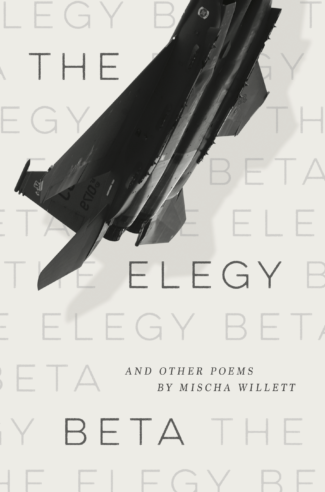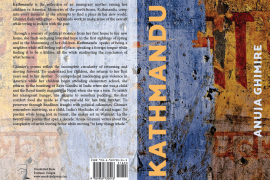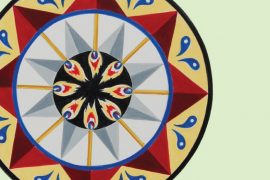I imagine the Adam of Genesis 1 stirring to consciousness, birthed by the words “let us make…,” then whisked into the garden whenever we turn the page. He drinks in an impeccable, new world, yet cannot make sense of his senses. Although still waking up, still coming into his own being, God parades every living thing before him and asks for their names. We read Adam’s response as a singular act. He uttered fox and capybara, swift and swallow—and everything that is was named.
Readers sitting in front of their Bibles internalize a once and for all act. Yet, as linguistic persons we daily pick up where Adam left off. Parents name their children before witnessing their personalities or knowing who they will take after. Scientists borrow human names to organize impending storms; the guy in the next cubicle bears little resemblance to a gathering hurricane, yet we call them both Barry. White people belatedly waking to cruel reality sit before screens, absorbing videos of young black lives ending at the hands of public servants, and name the moments travesties.
When Mischa Willett stirs to consciousness on the page, he affirms we are never done naming what we see or learning to live with what we’ve labeled. The Elegy Beta, the poet’s latest, both embraces and tries to escape the obligations of being—that is, witnessing and naming. Willett whirs and waxes rhapsodic, yet never writes from disembodied fancy. He converses with what he classifies knowing that, if we’re lucky, our understanding falls within the margin of error.
In his introduction, poet and translator Mark Burrows ties Willett’s work to this postnatal labor. The poet, Burrows notes, “experiments with new ways to shape something as primal as the naming to which we give ourselves, echoing the ancient creation narrative in Genesis as a preface to musings that are not exactly irreverent but are surely sweetened with levity.”
At various moments throughout The Elegy Beta, Willett’s speakers are dizzied lovers, balladeers lamenting soup hijacked from a lunch counter, domesticated beasts and daydreamers. Whatever guise he assumes, and whichever layer of himself he reveals, he leans on language like a handrail as he feels his way through the world.
Willett asks “What’s in a name?” early and often. In several poems, he sifts the Biblical custom of referring to a person, place or thing by its character or circumstance. “That names are not names / was clear from the scriptural start,” Willett writes in “Christening.”
There he considers synonyms for one’s name, the descriptive potential of hashtags and the way his fumbling might brand him “What Time Is It? Or, / Which Way is Up? Do You / Have a Lemon I Could Borrow?” Willett throws up his hands, asking for divine help yet struggling with how the multiplicity of God’s names leaves us short of true recognition:
Who is like you, O Unnameable,
Not It and Not It? Caller who Refuses
to be called, except as Help Us,
who names and tasks with naming.
Help us, Minus and Presence,
when you make it, to conceive
the reference.
In “Dream at Bethel,” Willett—like Jacob—wrestles with God. Stepping into the story, he beckons us to see how our lives trace the same thousands-year-old narratives. Rather than jockey with the Almighty for position, he grapples with the gap between dreams and waking reality. While sleeping upon a stone pillow, he lets dreams overtake him:
I can fly like hawks, have green-eyed wives
from the east, am a sailor with a swift ship,
fish, kingdoms under me, then this:
a ladder leaning into clouds reaching high as noon,
quick as raindrops, up and down, angels, bright as moon.
Rising, he notices his lack yet takes comfort in the capacity to dream at all, choosing to “call the place Church, to remember what I saw.”
In slighter moments, where time and breath temporarily suspend, Willett ventures into the world to forage names for the seemingly ineffable. He identifies “February slant light” and “morning chill” (“Eclogue”), describes the way “every afternoon / weeps over its weather / with little to show” (“Every Wind, Teaching”) and basks in the “yolk of the cracked sun” (“First Out of Bed”).
The title poem comprises the book’s last 30 pages and Willett’s tribute to Rilke’s The Duino Elegies. Burrows writes that Willett’s ten stanzas bear “the mark of a jazz improvisation … we still sense the imprint of Rilke’s thematic melodies,” but the modern poet refreshes them.
Indeed, this riff on Rilke resembles Coltrane taking a tune like “Greensleeves” into his own hands: the material is timeless, requiring little adornment. But a true artist sounds his own voice, making it sing in exhilarating ways. “This is my swan / song and I’m drinking it,” Willett writes in the first entry.
Like Rilke, he traffics in angels and star-crossed lovers, questions what achieves immortality and what eventually fades, and identifies the ways eternity encroaches upon the everyday and vice versa.
Willett debunks cherished myths and deep-seated expectations. Rather than moan over death, he puzzles over its strangeness:
To float away from one’s name
and nervous hands, to leave
one’s desires as easily as a broken toy.
To see meaning float apart like particles
He also finds salvation fragments in the little things:
To know the features of your face I feel
as thrust, breath, wave, quake, crush,
the chthonic gods pushing
through the deep and down to us,
Neptune blowing himself blue
on a shell,
you, well …
As the elegy expands and contracts, he returns to Adam’s slippery task. Readers, but especially those of us in the Christian faith tradition, believe ourselves wise enough to draw the right categories—but we fail to attach the proper names to the faces of love and ruin, life and death.
“We have learned nothing / from painting, which shows up / its subject by wash and backfill,” Willett writes. “Have / not, even with all that training, learned / to see ourselves.”
In our breathless pursuit of beauty and meaning, we humans circle transcendence. Willett hopes close is close enough—that drawing near enough to glory, we might bottle it:
O Lover, we have suffered
so much wonder; let’s make
a symbol of everything
so it stays. Let’s ferment
everything and never not
be drunk.
Overwhelmed by what radiates and what proves illusory, he remembers that we are bound to language. Its substance and limitations define our own. In the ninth elegy, he writes:
Perhaps, however hard it is,
we are here to pronounce house,
fruit-tree, fountain, tower, to realize
speech is a rendering that requires
deep dreaming.
Later, he adds, “This is the time for saying what we can.”
If naming ranks preeminent among our purposes, perhaps it doubles as a true form of prayer. If our lips form the vowel sounds enough, we might make contact with what is best in the world and prove ourselves worthy of it. He writes:
Sing back at the angel, then, O
man, but not about your feelings,
which are small compared with his.
Sing instead of the made. He will
stand amazed at your recitation
of the weight of a stone.
At our most self-aware, people live with the knowledge that these names we assign our emotions and experiences will not outlast us. Someone else will come along, living a slightly different life, giving a slightly different name. But to live, Willett suggests, is to try and find the proper words. In the effort, our eyes dilate to take in as many of the ripples and relationships that we can handle.





